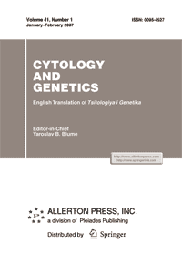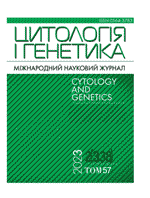Breast cancer (BC) is the most common cancer diagnosis in women worldwide. Among causative BC genes, MRE11, ERCC1, TNRC9 (TOX3), and CASC16 play an important role in DNA damage repair; FGFR2, CCNE1, ZMIZ1, and LSP1 involve in cell cycle checkpoint. A functional polymorphism of these genes may alter DNA repair capacity and genomic stability. Single Nucleotide Polymorphisms (SNPs) can modify the risk of cancer, and thus, SNPs may be considered as potential markers of carcinogenesis. Among them, eight SNPs (rs2981582, rs569550, rs3218035, rs704010, rs2155209, rs3212986, rs12443621 and rs4784227) are significantly associated with BC risk in various populations. This study was conducted to investigate the genetic susceptibility of these SNPs in the development of BC in Vietnamese women. MRE11 rs2155209 and CASC16 rs4784227 were found to be associated with BC risk (CC vs. CT + TT: OR = 0.57, 95% CI 0.34 to 0.97, P = 0.03 and CT vs. CC + TT: OR = 1.43, 95% CI 1.03 to 1.97, P = 0.03; respectively). These findings suggest that SNPs involved in DNA repair genes may affect the susceptibility of BC in Vietnamese women.
Keywords: breast cancer, single nucleotide polymorphism, MRE11, rs2155209, CASC16, rs4784227

Full text and supplemented materials
References
1. Bretones, G., Delgado, M.D., and Leon, J., Myc and cell cycle control, Biochim. Biophys. Acta—Gene Regul. Mech., 2015, vol. 1849, no. 5, pp. 506–516.
2. Chen, H., Qi, X., Qiu, P., and Zhao, J., Correlation between LSP1 polymorphisms and the susceptibility to breast cancer, Int. J. Clin. Exp. Pathol., 2015, vol. 8, no. 5, pp. 5798–5802.
3. Chen, Y., Shi, C., and Guo, Q., TNRC9 rs12443621 and FGFR2 rs2981582 polymorphisms and breast cancer risk, World J. Surg. Oncol., 2016, vol. 14, no. 1, pp. 50–55. https://doi.org/10.1186/s12957-016-0795-7
4. Couch, F.J., Nathanson, K.L., and Offit, K., Two decades after BRCA: setting paradigms in personalized cancer care and prevention, Science, 2014, 343, no. 6178, pp. 1466–1470.
5. Cowper-Sallari, R., Zhang, X., Wright, J.B., Bailey, S.D., Cole, M.D., Eeckhoute, J., Moore, J.H., and Lupien, M., Breast cancer risk-associated SNPs modulate the affinity of chromatin for FOXA1 and alter gene expression, Nat. Genet., 2012, vol. 44, no. 11, pp. 1191–1198. https://doi.org/10.1038/ng.2416
6. Dorak, M.T., Genotyping methods and errors, in Genetic Association Studies: Background, Conduct, Analysis, Interpretation, Garland Science, 2017.
7. Gao, F. and Ge, R., LOC643714 polymorphisms contribute to an elevated susceptibility to breast cancer: a meta-analysis of 231,191 subjects, Clin. Breast Cancer, 2019, vol. 19, no. 5, pp. 596–610. https://doi.org/10.1016/j.clbc.2019.04.016
8. Greenberg, R.A., Sobhian, B., Pathania, S., Cantor, S.B., Nakatani, Y., and Livingston, D.M.L., Multifactorial contributions to an acute DNA damage response by BRCA1/BARD1-containing complexes, Genes Dev., 2006, vol. 20, no. 1, pp. 34–46.
9. Han, J.Y., Wang, H., Xie, Y.T., Li, Y., Zheng, L.Y., Ruan, Y., Song, A.P., Tian, X.X., and Fang, W.G., Association of germline variation in CCNE1 and CDK2 with breast cancer risk, progression and survival among Chinese Han women, PLoS One, 2012, vol. 7, no. 11, pp. 1–11. https://doi.org/10.1371/journal.pone.0049296
10. Han, M.R., Deming-Halverson, S., Cai, Q., Wen, W., Shrubsole, M.J., Shu, X.O., Zheng, W., and Long, J., Evaluating 17 breast cancer susceptibility loci in the Nashville breast health study, Breast Cancer, 2015, vol. 22, no. 5, pp. 544–551. https://doi.org/10.1007/s12282-014-0518-2
11. He, X., Yao, G., Li, F., Li, M., and Yang, X., Risk-association of five SNPs in TOX3/LOC643714 with breast cancer in southern China, Int. J. Mol. Sci., 2014, vol. 15, no. 2, pp. 2130–2141. https://doi.org/10.3390/ijms15022130
12. Heikkinen, K., Rapakko, K., Karppinen, S.M., Erkko, H., Knuutila, S., Lundan, T., Mannermaa, A., Borresen-Dale, A.L., Borg, A., Barkardottir, R.B., Petrini, J., and Winqvist, R., RAD50 and NBS1 are breast cancer susceptibility genes associated with genomic instability, Carcinogenesis, 2006, vol. 27, no. 8, pp. 1593–1599. https://doi.org/10.1093/carcin/bgi360
13. Hue, N.T., Extraction of human genomic DNA from dried blood spots and hair roots, Int. J. Biosci., 2012, vol. 2, pp. 21–26.
14. Jiang, C., Yu, S., Qian, P., Guo, R., Zhang, R., Ao, Z., Li, Q., Wu, G., Chen, Y., Li, J., Wang, C., Yao, W., Xu, J., Qian, G., and Ji, F., The breast cancer susceptibility-related polymorphisms at the TOX3/LOC643714 locus associated with lung cancer risk in a Han Chinese population, Oncotarget, 2016, vol. 7, no. 37, pp. 59742–59753. https://doi.org/10.18632/oncotarget.10874
15. Kim, H.C., Lee, J.Y., Sung, H., Choi, J.Y., Park, S.K., Lee, K.M., and Kang, D., A genome-wide association study identifies a breast cancer risk variant in ERBB4 at 2q34: results from the Seoul Breast Cancer Study, Breast Cancer Res., 2012, vol. 14, no. 2, pp. 1–12. https://doi.org/10.1186/bcr3158
16. Li, X., Zou, W., Liu, M., Cao, W., Jiang, Y., An, G., Wang, Y., Huang, S., and Zhao, X.,Association of multiple genetic variants with breast cancer susceptibility in the Han Chinese population, Oncotarget, 2016, vol. 7, no. 51, pp. 85483–85491. https://doi.org/10.18632/oncotarget.13402
17. Lin, Y., Fu, F., Chen, M., Huang, M., and Wang, C., Associations of two common genetic variants with breast cancer risk in a Chinese population: a stratified interaction analysis, PLoS One, 2014, vol. 9, no. 12, pp. 1–12. https://doi.org/10.1371/journal.pone.0115707
18. Meyer, K.B. and Carroll, J.S., FOXA1 and breast cancer risk, Nat. Genet., 2012, vol. 44, no. 11, pp. 1176–1177.
19. Naccarati, A., Rosa, F., Vymetalkova, V., Barone, E., Jiraskova, K., Di Gaetano, C., Novotny, J., Levy, M., Vodickova, L., Gemignani, F., Buchler, T., Landi, S., Vodicka, P., and Pardini, B., Double-strand break repair and colorectal cancer: gene variants within 3' UTRs and microRNAs binding as modulators of cancer risk and clinical outcome, Oncotarget, 2016, vol. 7, no. 17, pp. 23156–23169. https://doi.org/10.18632/oncotarget.6804
20. O’Flaherty, E. and Kaye, J., TOX defines a conserved subfamily of HMG-box proteins, BMC Genomics, 2003, vol. 4, no. 1, pp. 13–22.
21. Paull, T.T., and Deshpande, R.A., The Mre11/Rad50/ Nbs1 complex: recent insights into catalytic activities and ATP-driven conformational changes, Exp. Cell Res., 2014, vol. 329, no. 1, pp. 139–147. https://doi.org/10.1016/j.yexcr.2014.07.007
22. Pei, X.H., Yang, Z., Lv, X.Q., and Li, H.X., Genetic variation in ERCC1 and XPF genes and breast cancer risk, Genet. Mol. Res., 2014, vol. 13, no. 1, pp. 2259–2267. https://doi.org/10.4238/2014
23. Rakowski, L.A., Garagiola, D.D., Li, C.M., Decker, M., Caruso, S., Jones, M., Kuick, R., Cierpicki, T., Maillard, I., and Chiang, M.Y., Convergence of the ZMIZ1 and NOTCH1 pathways at C-MYC in acute T lymphoblastic leukemias, Cancer Res., 2013, vol. 73, no. 2, pp. 930–941. https://doi.org/10.1158/0008-5472.CAN-12-1389
24. Shan, J., DSouza, S.P., Bakhru, S., Al-Azwani, E.K., Ascierto, M.L., Sastry, K.S., Bedri, S., Kizhakayil, D., Aigha, I.I., and Malek, J., TNRC9 downregulates BRCA1 expression and promotes breast cancer aggressiveness, Cancer Res., 2013, vol. 73, no. 9, pp. 2840–2849.
25. Shaye, A., Sahin, A., Hao, Q., Hunt, K., Keyomarsi, K., and Bedrosian, I., Cyclin E deregulation is an early event in the development of breast cancer, Breast Cancer Res. Treat., 2009, vol. 115, no. 3, pp. 651–659.
26. Shu, J., Hui, X., Zheng, X., Zhao, J., Xu, Z., Chen, Y., Lu, C., and Li, J., Correlation of FGFR2 rs2981582 polymorphisms with susceptibility to breast cancer: a case-control study in a Chinese population, J. Int. Med. Res., 2019, vol. 47, no. 10, pp. 4753–4763. https://doi.org/10.1177/0300060519869058
27. Tajbakhsh, A., Farjami, Z., Darroudi, S., Ayati, S.H., Vakili, F., Asghari, M., Alimardani, M., Abedini, S., Kushyar, M.M., and Pasdar, A., Association of rs4784227-CASC16 (LOC643714 locus) and rs4782447-ACSF3 polymorphisms and their association with breast cancer risk among Iranian population, EXCLI J., 2019, vol. 18, pp. 429–438. https://doi.org/10.17179/excli2019-1374
28. Tsai, C.W., Chang, W.S., Shen, T.C., Su, C.H., Wang, H.C., Liu, L.C., and Bau, D.T., Contribution of excision repair cross-complementing group 1 genotypes to triple negative breast cancer risk, PLoS One, 2018, vol. 13, no. 8, pp. 1–11. https://doi.org/10.1371/journal.pone.0202112
29. Wu, Z., Wang, P., Song, C., Wang, K., Yan, R., Li, J., and Dai, L., Evaluation of miRNA-binding-site SNPs of MRE11A, NBS1, RAD51 and RAD52 involved in HRR pathway genes and risk of breast cancer in China, Mol. Genet. Genomics, 2015, vol. 290, no. 3, pp. 1141–1153. https://doi.org/10.1007/s00438-014-0983-5
30. Yang, Z., Fang, X., Pei, X., and Li, H., Polymorphisms in the ERCC1 and XPF genes and risk of breast cancer in a Chinese population, Genet. Testing Mol. Biomarkers, 2013, vol. 17, no. 9, pp. 700–706. https://doi.org/10.1089/gtmb.2013.0122
31. Zhang, L. and Long, X.,Association of three SNPs in TOX3 and breast cancer risk: evidence from 97275 cases and 128686 controls, Sci. Rep., 2015, vol. 5, pp. 12773–12773. https://doi.org/10.1038/srep12773
32. Zhang, H., Wang, Y., Liu, Z., Yao, B., Dou, C., Xu, M., Li, Q., Jia, Y., Wu, S., and Tu, K., Lymphocyte-specific protein 1 inhibits the growth of hepatocellular carcinoma by suppressing ERK 1/2 phosphorylation, FEBS Open Bio, 2016, vol. 6, no. 12, pp. 1227–1237.
33. Zhang, Y., Zeng, X., Liu, P., Hong, R., Lu, H., Ji, H., Lu, L., and Li, Y., Association between FGFR2 (rs2981582, rs2420946 and rs2981578) polymorphism and breast cancer susceptibility: a meta-analysis, Oncotarget, 2017, vol. 8, no. 2, pp. 3454–3470. https://doi.org/10.18632/oncotarget.13839
34. Zhao, R., and Ying, M.F., Association between ERCC1 and ERCC2 polymorphisms and breast cancer risk in a Chinese population, Genet. Mol. Res., 2016, vol. 15, no. 1, pp. 1–6. https://doi.org/10.4238/gmr.15017263
35. Zuo, X., Wang, H., Mi, Y., Zhang, Y., Wang, X., Yang, Y., and Zhai, S., The association of CASC16 variants with breast cancer risk in a northwest Chinese female population, Mol. Med., 2020, vol. 26, no. 1, pp. 1–10. https://doi.org/10.1186/s10020-020-0137-7
